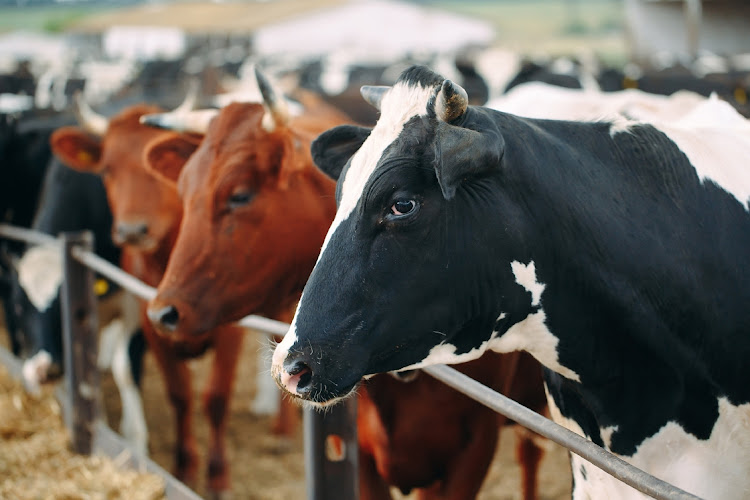
By Ncaba Ntshakala
The Eswatini economy, which is heavily intertwined with the South African market, faces potential challenges as the Republic of South Africa (RSA) grapples with a series of Foot-and-Mouth Disease (FMD) outbreaks.
According to the recently released quarterly economic bulletin by Eswatini’s Ministry of Economic Planning and Development, the spread of FMD in South Africa has heightened concerns among stakeholders in Eswatini, with fears mounting over the economic and agricultural implications for the country.
This ongoing situation threatens to impact livestock production, agricultural trade, and food prices, potentially leading to wider economic repercussions in Eswatini.
FMD is a severe and highly contagious viral disease that affects livestock with divided hooves, such as cattle, sheep, and goats. It can devastate animal populations, resulting in illness, decreased productivity, and, in severe cases, widespread fatalities.
The World Organization for Animal Health (WOAH) estimates that FMD affects 77% of the global livestock population, with the disease circulating in parts of Africa, the Middle East, and Asia, as well as localized areas in South America.
South Africa has not been immune to this threat; since 2019, it has experienced eight notable outbreaks which has pushed its agricultural sector into crisis mode.
For Eswatini, the implications are significant. South Africa serves as Eswatini’s primary trading partner and is a crucial supplier of livestock and animal products.
Due to Eswatini’s dependence on South African imports to support its livestock sector, including cattle for breeding and dairy cows for milk production, the disruption in imports has forced Eswatini to re-evaluate its livestock management and sourcing strategies.
RELATED:Livestock destocking a solution to drought crisis
Furthermore, a 2019 decision by the Eswatini government to impose a ban on animal imports from South Africa remains in effect, complicating efforts to maintain livestock supplies for local consumption and market stability.
Prior to the 2019 FMD outbreak, Eswatini routinely imported dairy cattle from South Africa to enhance its dairy industry, which contributed significantly to the local economy by supplying milk, emasi (sour cream), and other dairy products.
The FMD crisis, however, has led to a critical reduction in dairy cattle imports, directly impacting milk production and thereby decreasing the availability of milk and dairy products. This reduced supply has created a gap in the market, which could drive up prices for essential goods like fresh milk and emasi, potentially impacting household consumption and nutrition, especially in rural communities reliant on local dairy production.
Without sufficient domestic milk production to meet demand, Eswatini may be forced to increase its reliance on imported dairy products, a development that could strain both consumers and the broader economy.

Importing dairy products would introduce additional costs, potentially making milk products less affordable for the average consumer and could lead to increased inflationary pressures within the food sector.
This dependence on imported dairy is not only costly but also introduces vulnerabilities associated with supply chain disruptions and currency fluctuations.
The Kingdom’s Ministry of Agriculture has been working proactively to mitigate these challenges.
To limit the economic damage and reduce dependency on South African livestock, the ministry has implemented several initiatives focused on improving livestock health and productivity domestically.
Key strategies include artificial insemination and selective breeding programs designed to enhance the resilience and output of local herds. The report asserted that by investing in these methods, Eswatini sets to strengthen its livestock base, especially dairy cattle, which is critical to stabilizing milk production and reducing the need for imports.
In addition, Eswatini has strengthened its biosecurity measures to prevent the incursion of FMD and other animal diseases. By adhering to strict import bans on animals from South Africa, the government hopes to protect the local livestock industry from the contagion.
Yet, as the economic bulletin from the Ministry of Economic Planning and Development notes, these measures are not without their own economic consequences.
Reduced imports have limited access to new livestock for breeding, thus slowing growth in the livestock sector and diminishing future productivity gains.
The South African government is likewise battling the economic fallout from FMD, which has shaken its livestock industry and prompted export restrictions.
China, Botswana, Mozambique, Namibia, Zambia, Zimbabwe, and Eswatini have all halted livestock and red meat imports from South Africa in response to the outbreaks. The ban has further constrained the South African economy, where livestock and meat exports are a significant source of revenue.
RELATED:Farmers Urged to Increase Livestock Production for Exports
Eswatini’s economic planners warn that the longer these FMD outbreaks persist in South Africa, the more substantial the risks become for Eswatini’s economy.
Agricultural exports represent a crucial segment of Eswatini’s trade portfolio, and any disruption to livestock imports from South Africa hampers the nation’s ability to sustain its livestock numbers, ensure steady agricultural output, and maintain price stability for animal products.
The ministry’s quarterly bulletin emphasizes that, as a landlocked country reliant on regional trade flows, Eswatini is particularly vulnerable to such external shocks and must remain vigilant in seeking solutions.
Moving forward, the Ministry of Economic Planning and Development has called for collaborative dialogue with South African authorities and other stakeholders to address these trade disruptions.
The ministry suggests that regional governments need to explore harmonized biosecurity protocols and trade policies that would allow for safer and more consistent livestock exchanges, even amid disease outbreaks.






